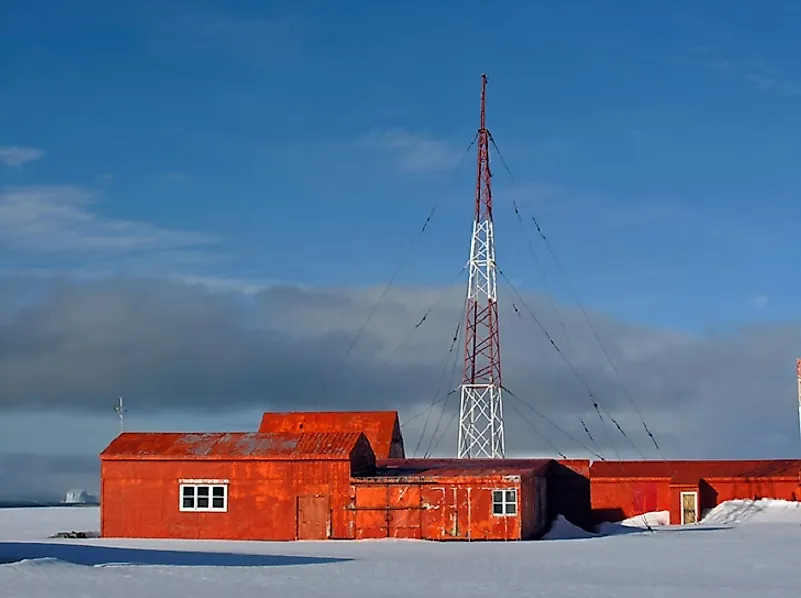Countries With Antarctic Research Stations

Antarctica, commonly regarded as an international continent is a sort of "global commons" for scientific discovery, peace, and cooperation. Antarctica is protected by the Antarctic Treaty which ensures the wellbeing of the natural environment. As of October 2006, 40 countries are signatories of the Antarctic Treaty. The signatories are allowed to maintain a seasonal or year-round station in Antarctica. However, some countries maintain both statuses. Antarctic research stations are spread across the continent, with some stations being permanent while others are temporary. There are approximately 50 permanent active research stations representing 32 countries drawn from all the continents. Antarctica has no indigenous human inhabitants, but always has seasonal staff drawn from the countries collectively bound by the treaty. The continent is surrounded by islands with personnel ranging from 4,000 in the summer to 1,000 during winter.
Countries With Antarctic Research Stations
Significance of Antarctica's Research Stations
Antarctica is an important research station for varying reasons depending on the country conducting its research. However, Antarctica has the cleanest air and monitoring of the atmospheric air is also done there for neutral datasets. The continent also experiences minimal background radiation and low temperatures with extremely thin, dry and clear air. Antarctica has no national border making it entirely open to every country. The Antarctic stations have been a huge success for research especially in the field of astrophysics, astronomy, and related studies due to its unique geographical location.
Notable Antarctic Research Stations
Antarctica research stations, as mentioned above, are either permanent or seasonal. Permanent stations are those that run all year round. Some of the most common permanent stations are led by countries such as Argentina, Australia, Belgium, Chile, France, Germany, and Italy among others.
Argentina has a total of six active research stations operating all the year round. Some of its permanent research stations include Esperanza base in the Hope Bay, Marambio base, Orcadas, and Belgrano II. These four stations are in the south of 60 degrees of the Antarctic.
Australia also has its Mawson research station located south of Antarctic. It lies in the Holme Bay. It is Australia’s oldest Antarctic station base for research programs such as cosmic rays detectors, aeronomy, meteorological, and geomagnetic studies. The station houses around 20 personnel during winter, and as many as 60 personnel during summer, and is the only station that uses wind generators for 70% of its electrical power needs.
Belgium is known for the Prince Elizabeth Antarctica research station. It is built and operated by the International Polar Foundation and combines eco-friendly material, efficient energy use, and a modern waste management system. The station is run entirely on the wind and solar energy and mainly focuses on the investigations and research on ice related projects.
Brazil has its Comandante Ferraz Antarctica Station located in the Admiralty Bay. The station is primarily used to study programs related to climate change such as ozone depletion, global warming, greenhouse effects, and ocean’s rising levels. In 2012, a fire burnt down around 70% of the station, killing two soldiers in the process.
Symbols of Global Camaraderie
Antarctica's research station infrastructure has played a greater role in research and peace in most countries. The Antarctic Treaty has made it possible for nations to coexist peacefully and utilize the available space in and around the South Pole without infringing upon each other’s rights.
Countries With Antarctic Research Stations
| Country | Year Establishing Oldest Antarctic Research Station |
|---|---|
| Argentina | 1904 |
| Australia | 1954 |
| Belarus | 2007 |
| Belgium | 1957 |
| Brazil | 1984 |
| Bulgaria | 1988 |
| Chile | 1947 |
| China | 1985 |
| Czech Republic | 1989 |
| Ecuador | 1990 |
| Finland | 1988 |
| France | 1950 |
| Germany | 1976 |
| India | 1983 |
| Italy | 1976 |
| Japan | 1957 |
| Netherlands | 1964 |
| New Zealand | 1957 |
| Norway | 1949 |
| Pakistan | 1991 |
| Peru | 1989 |
| Poland | 1956 |
| Romania | 1986 |
| Russia | 1956 |
| South Africa | 1960 |
| South Korea | 1988 |
| Spain | 1988 |
| Sweden | 1988 |
| Ukraine | 1994 |
| United Kingdom | 1944 |
| United States | 1929 |
| Uruguay | 1984 |











